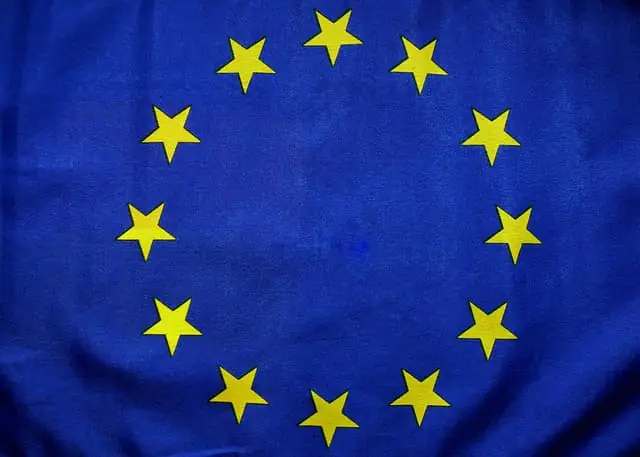Uncategorized
EU-ministers van Volksgezondheid bespreken smaakbeperkingen voor E-sigaretten
EU-ministers van Volksgezondheid bespreken smaakbeperkingen op E-sigaretten
Op 21 juni kwamen de ministers van Volksgezondheid van alle 27 EU-lidstaten bijeen om te beraadslagen over voorstellen die gericht zijn op het beperken van smaken in e-sigaretten en andere nicotineproducten, waaronder nicotinepakjes. Hun beslissingen kunnen resulteren in strengere regelgeving die miljoenen nicotinegebruikers in heel Europa treft.
Het voorstel voor smaakbeperkingen
Een van de prominente commissies binnen de EU, de Commissie Werkgelegenheid, Sociaal Beleid, Volksgezondheid en Consumentenzaken (EPSCO), bestudeert aanbevelingen van Letland en Denemarken om een verbod op smaakstoffen in de hele EU in te stellen en problemen met grensoverschrijdende verkoop aan te pakken. Het voorstel van Letland heeft steun gekregen van verschillende landen, waaronder Cyprus, Estland, Ierland, Litouwen, Luxemburg, Malta, Portugal, Slovenië en Spanje. Het initiatief van Denemarken wordt gesteund door Estland, Finland, Frankrijk, Duitsland, Ierland, Luxemburg, Malta, Nederland, Polen, Slovenië en Spanje.
Als de ministers van Volksgezondheid een consensus kunnen bereiken ten gunste van deze voorstellen, is de volgende stap dat de EU-Commissie wetgeving opstelt, waarover vervolgens gestemd wordt door de Raad en het Europees Parlement. Nationale verkiezingen kunnen van invloed zijn op de mate van steun voor smaakverboden in verschillende landen tijdens dit proces.
Op dit moment hebben zeven EU-landen al wetten geïmplementeerd die smaakstoffen in e-sigaretten verbieden: Denemarken, Estland, Finland, Hongarije, Litouwen, Nederland en Slovenië. Spanje heeft net een openbare raadpleging afgerond over voorgestelde smaakverboden en Letland is bezig met zijn eigen smaakbeperkingen. Opmerkelijk is dat geen enkel Europees land wetgeving heeft aangenomen om e-sigaretten volledig te verbieden.
Bestaande regelgeving en de behoefte aan consistente normen
De huidige Tabaksproductenrichtlijn (Tabaksrichtlijn) regelt de normen voor nicotine- en tabaksproducten binnen de EU, waarbij individuele lidstaten hun eigen smaakvoorschriften kunnen vaststellen. Het voorstel van Letland suggereert echter dat deze individuele verboden niet effectief zijn door het ontbreken van een alomvattend verbod op grensoverschrijdende verkoop op afstand van tabak en aanverwante producten, waaronder e-sigaretten.
Gezien de aanhoudende verschillen tussen de lidstaten met betrekking tot smaakvoorschriften en grensoverschrijdende verkoop van e-liquids, is er duidelijk behoefte aan meer uniforme regelgeving op EU-niveau.
Het voorstel van Denemarken schetst strengere eisen en pleit ervoor dat de EU lidstaten toestaat om specifieke categorieën nicotineproducten te verbieden. "Deze initiatieven moeten een verbod op smaken van nicotineproducten omvatten, het nicotinegehalte beperken en bepaalde producten aan banden leggen als dat nodig wordt geacht. We roepen de Europese Commissie ook op om discussies te starten over nicotineproducten en mogelijke regelgeving te herzien waarmee lidstaten bepaalde productcategorieën kunnen verbieden."
Tegenstand van consumentenorganisaties
De Europese consumentengroep European Tobacco Harm Reduction Advocates (ETHRA) heeft alle EU-ministers van Volksgezondheid gevraagd zich tegen de voorstellen te verzetten en de mogelijke gevolgen van smaakverboden te benadrukken. "We dringen aan op voorzichtigheid in deze discussies en proberen feitelijke context te bieden, aangezien de voorgestelde maatregelen waarschijnlijk niet effectief de jeugd zullen beschermen en uiteindelijk meer kwaad dan goed kunnen doen. Een algeheel of gedeeltelijk verbod op de productie en levering van nieuwe nicotineproducten zal de onderliggende vraag naar nicotine niet wegnemen. Alle veiligere nicotineproducten hebben een bepaalde smaak (waaronder tabakssmaak), wat betekent dat een verbod op smaken in feite neerkomt op een substantieel verbod op deze producten."
ETHRA heeft vier strategieën voorgesteld om de blootstelling van jongeren aan e-sigaretten en andere nicotineproducten te verminderen:
- Gereguleerde juridische markt: Het opzetten van een legale en gereguleerde markt.
- Systemen voor leeftijdsverificatie: Systemen implementeren om de leeftijd van kopers te verifiëren.
- Marketingcontroles: Reguleren hoe deze producten op de markt worden gebracht.
- Smaakbeschrijvingsvoorschriften: Bepalen hoe smaken worden beschreven en geadverteerd.
De organisatie dringt er bij de EU-ministers van Volksgezondheid op aan om aanstaande herzieningen van de belangrijkste tabaksrichtlijn van de EU te baseren op "bewijs, zorgvuldige overweging en zinvol overleg". Ze benadrukken dat deze richtlijnen levensveranderende gevolgen kunnen hebben voor Europese burgers en dat het cruciaal is om niet aan herzieningen te beginnen met vooraf bepaalde uitkomsten op basis van zwak of misleidend bewijs.
Conclusie
Nu de discussies tussen de EU-ministers van Volksgezondheid over smaakbeperkingen voor e-sigaretten vorderen, is het essentieel om de bredere implicaties voor de volksgezondheid en individuele vrijheden te overwegen. Het vinden van een balans tussen regelgeving en consumentenrechten zal van vitaal belang zijn bij het vormgeven van het toekomstige landschap van vaping in Europa. De uitkomsten van deze discussies kunnen van grote invloed zijn op miljoenen nicotinegebruikers in Europa, waardoor een geïnformeerde en constructieve dialoog essentieel is.


Blok "blog delen" niet gevonden